Carrot Ginger Soup
162 Comments
Updated May 23, 2024
This post may contain affiliate links. See my disclosure policy.
Simply put — this is the best carrot ginger soup you’ll ever make. It’s a mesh of warm winter flavors, has a smooth velvety texture, and boasts many nutritional benefits.
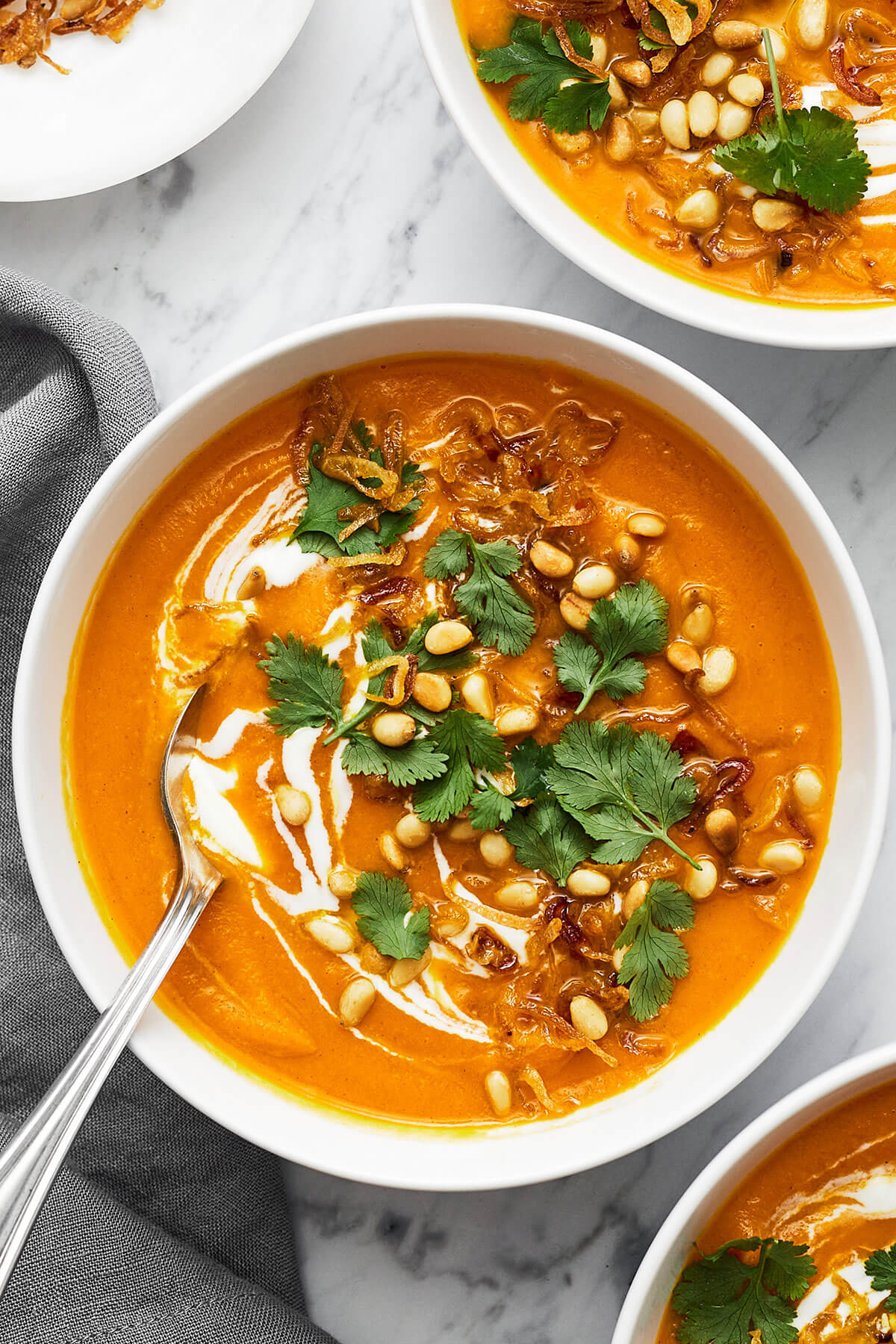
Looking back at my recipe index, it’s obvious I have a love for carrots and ginger. I often whip up a carrot dish, like my French carrot salad or honey glazed carrots, during cold weather months when I’m trying to get more color on my plate (gotta love beta-carotene). And then I lean towards ginger when I need an immunity boost – especially my ginger shots!
So with those two ingredients, I’d say this carrot ginger soup recipe is quite the nutritional powerhouse. Plus, it tastes ridiculously good and is super easy to make. A combination that can’t be beaten.
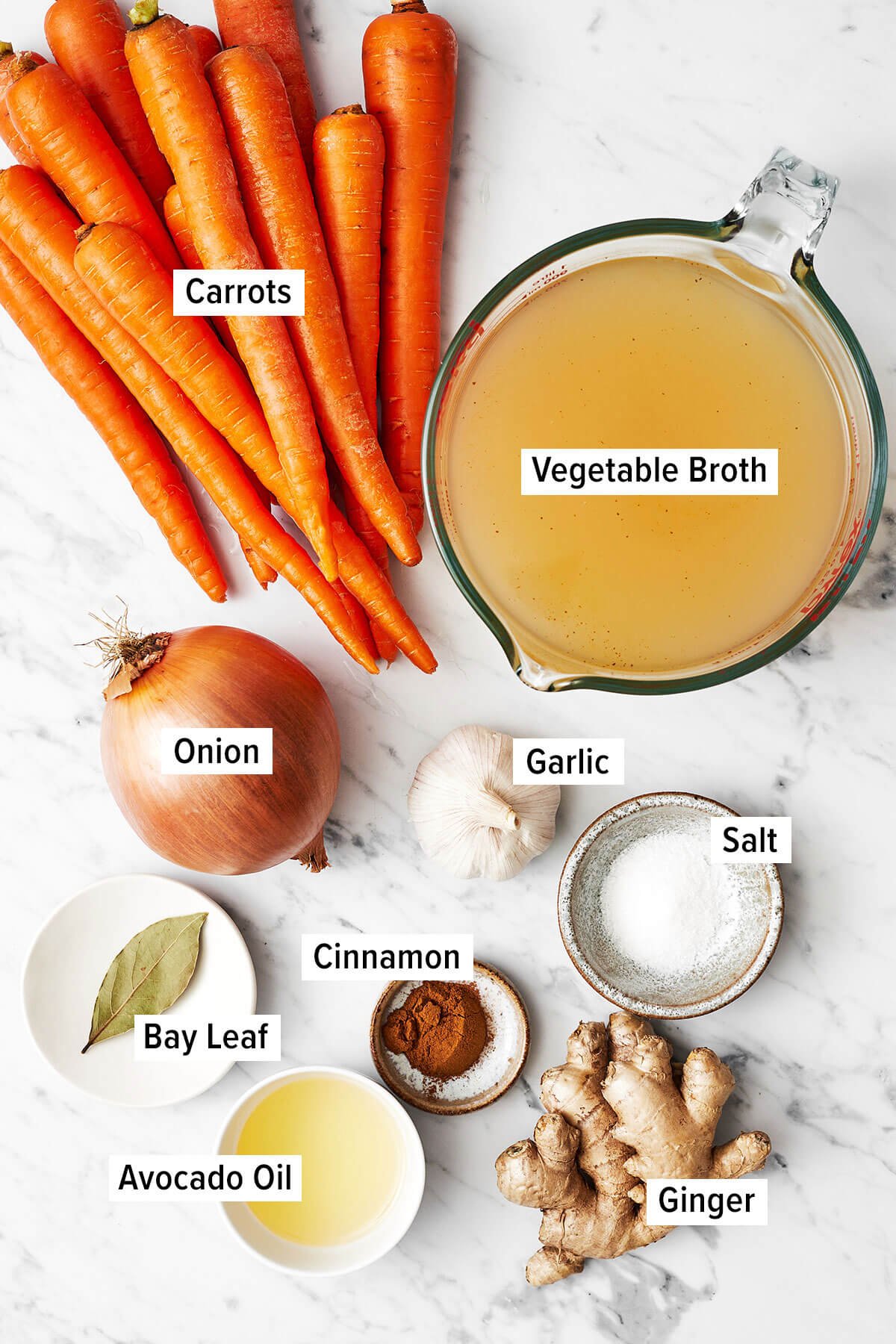
Carrot Ginger Soup Recipe Ingredients
This recipe comes together beautifully with seven simple ingredients. Here’s what you will need:
- Vegetables: Carrots, ginger, and onion work together to make the soup deliciously sweet and warming.
- Broth: Use a vegetable broth to keep the recipe completely vegan/vegetarian. If that’s not important to you, then feel free to use chicken broth.
- Spices and Aromatics: A touch of cinnamon, salt, and a bay leaf are all you need.
Helpful tip: Make your carrot ginger soup extra special by swirling in coconut cream and topping it with crispy shallots, pine nuts, and chopped cilantro!
Find the printable recipe with measurements below
How To Make Carrot Ginger Soup
There’s only two main steps to this recipe: roast and blend. Here is how to do that:
Cook the onions and garlic. Over medium heat, cook the onions until they’re translucent. Then add the ginger and garlic, and cook for another minute or so.
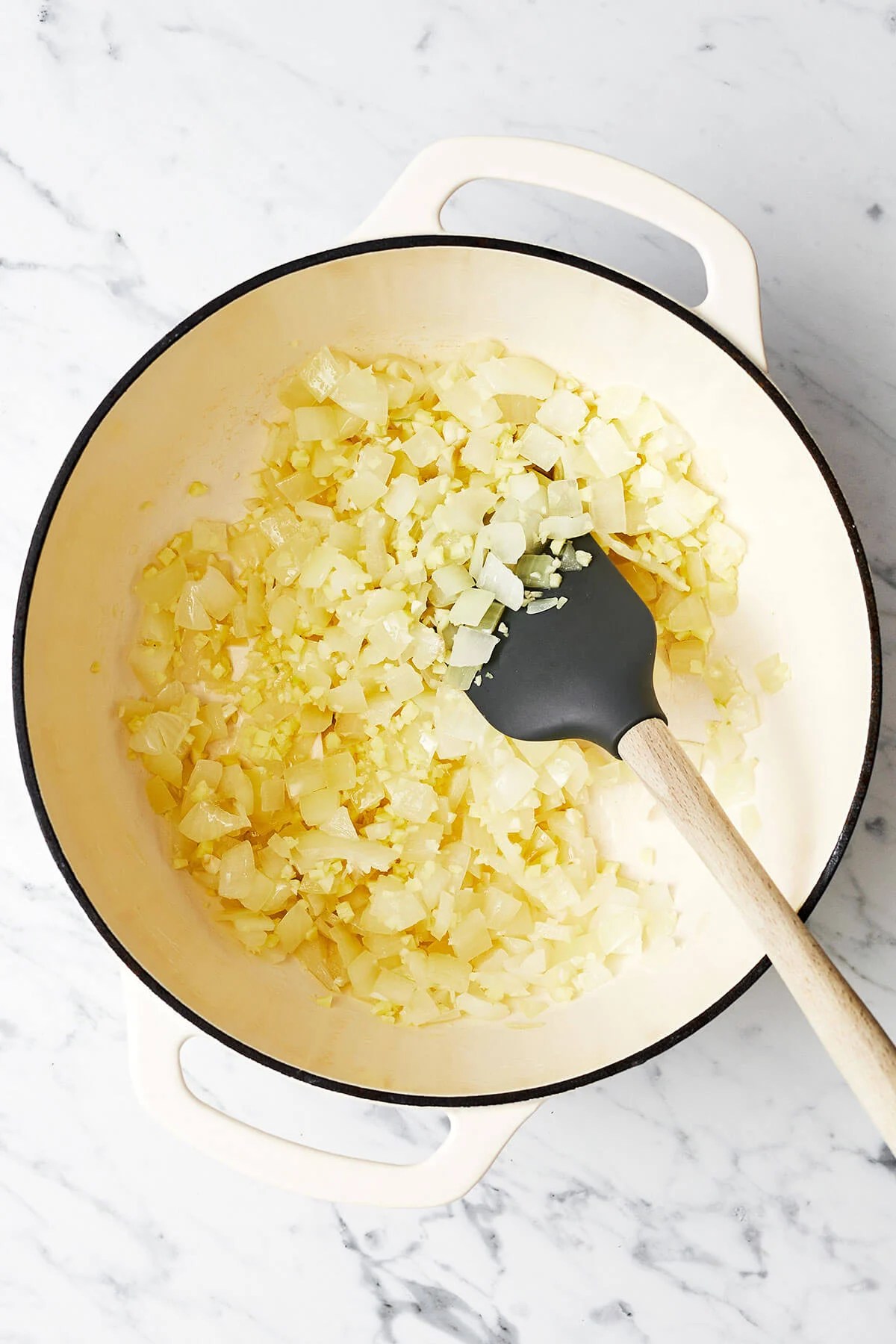
Cook the carrots. Add the carrots and cook for 10 minutes. Make sure to stir them around occasionally while cooking.
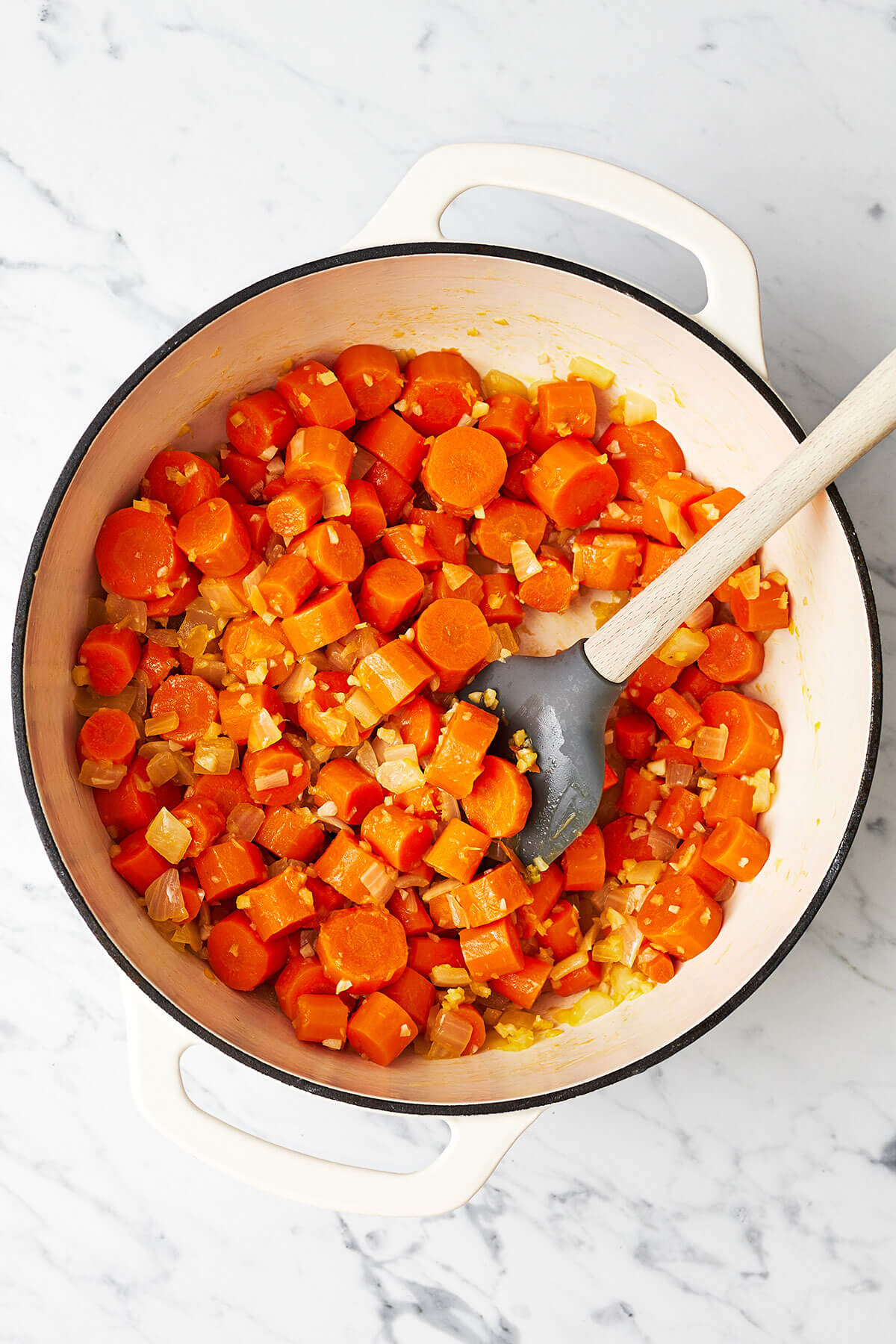
Add the rest of the ingredients and simmer. Add the broth, bay leaf, cinnamon, and salt to the pot. Bring to a boil, then let it simmer for 20 to 30 minutes until the carrots are soft.
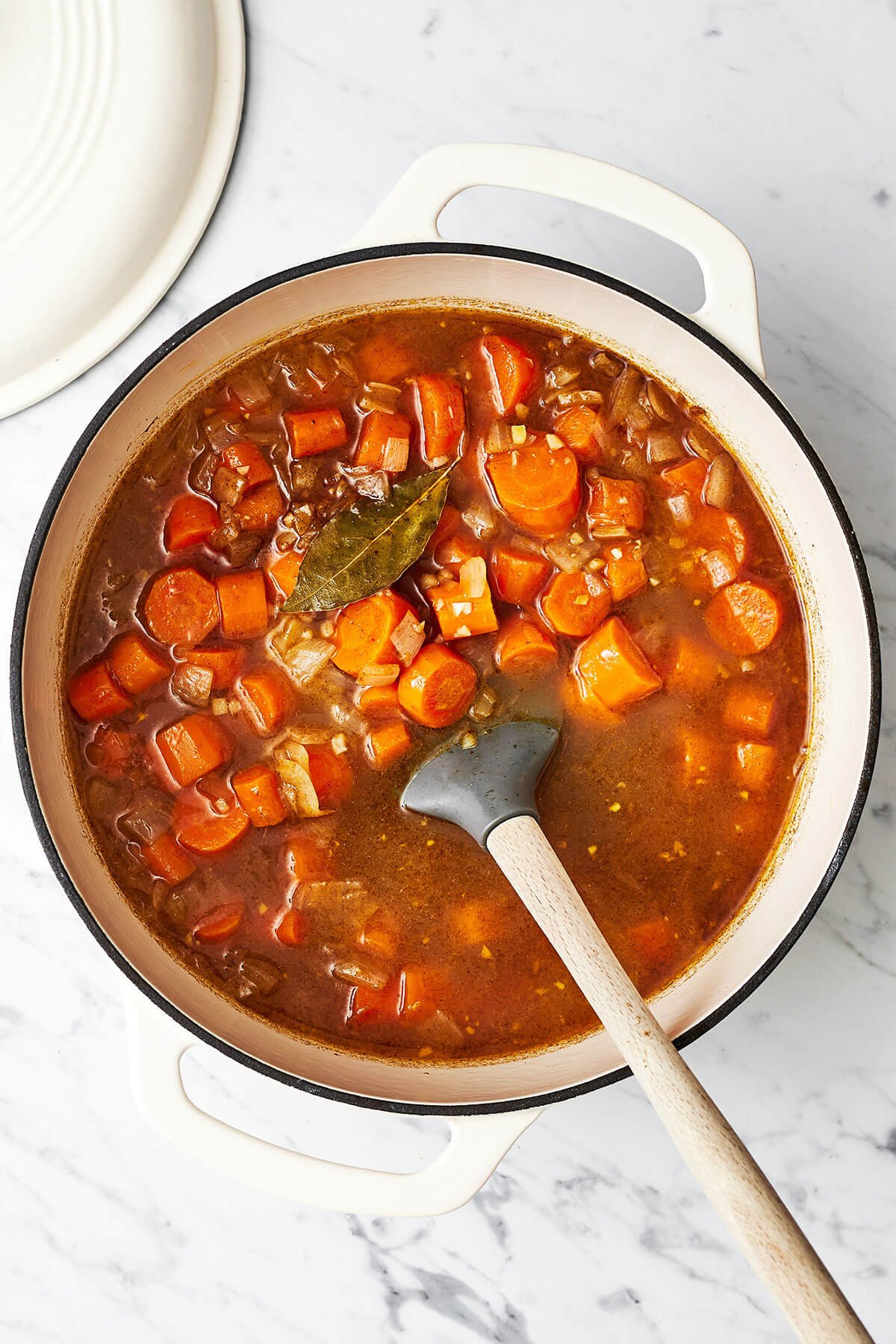
Blend the soup. Remove the bay leaf and blend the soup with an immersion blender or transfer it to a high-powered blender. The result should be a perfectly pureed and velvety smooth soup.
Enjoy the carrot ginger soup all on its own, or top it with a swirl of coconut cream, crispy shallots, toasted pine nuts, and cilantro. It’s up to you!
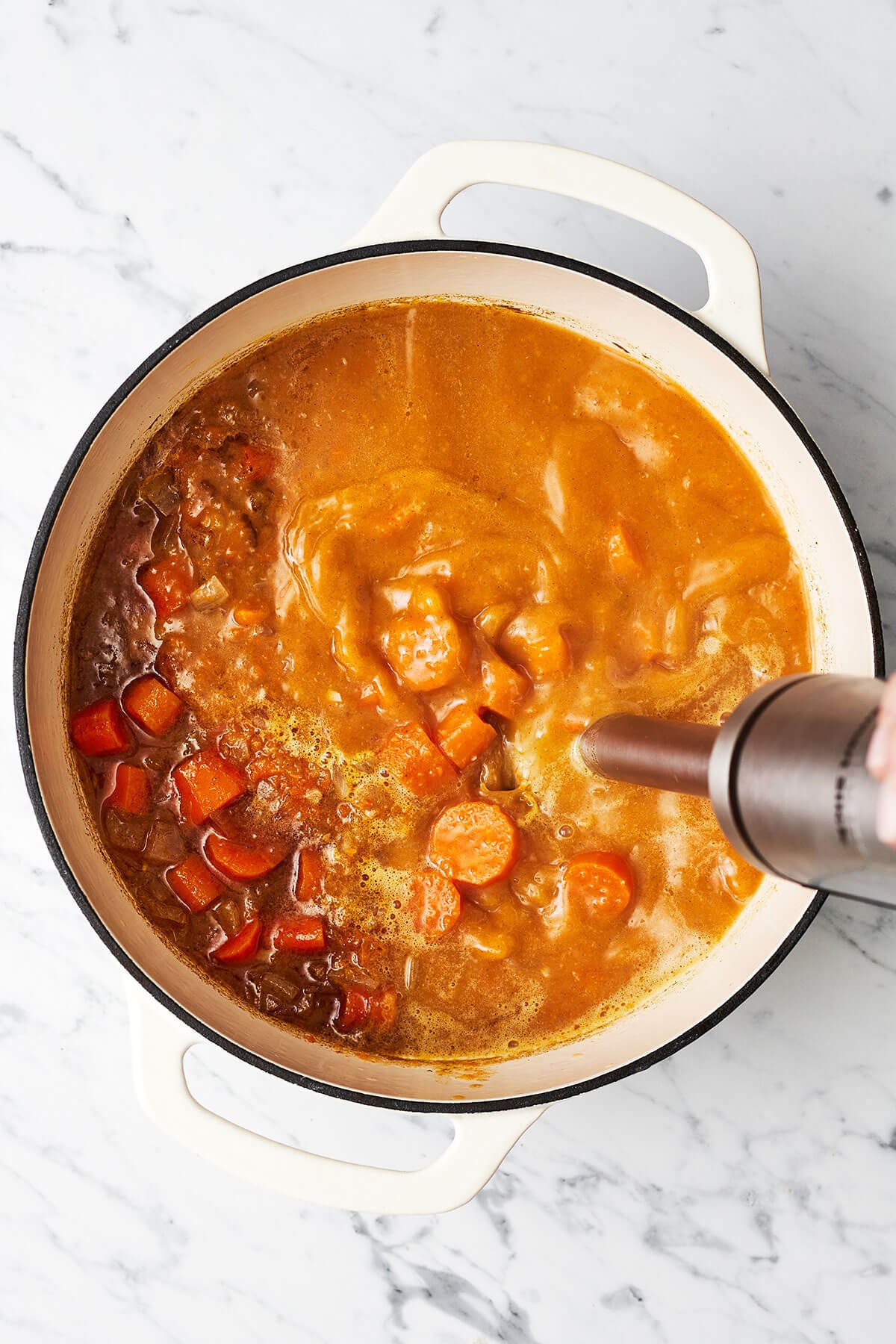
What To Serve With Carrot Soup
- If you’re looking to slurp this alongside a warm, hearty protein dish, my crispy baked chicken thighs, baked chicken breast, garlic butter shrimp, or baked salmon, will all taste delicious.
- If you like a good old soup and salad combination, this soup pairs nicely with my kale apple salad, wild rice and arugula salad, roasted red pepper and chickpea salad, or za’atar roasted cauliflower.
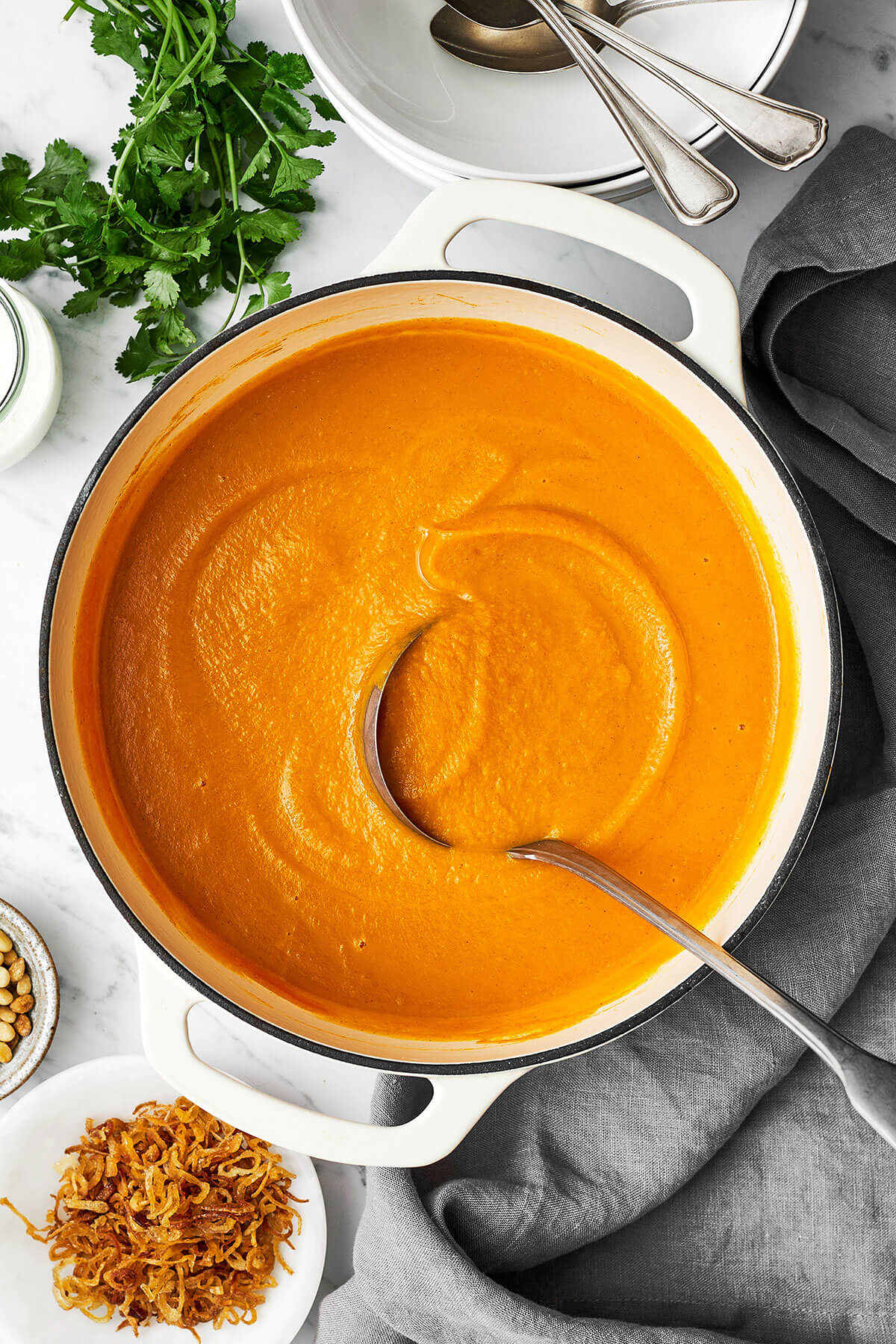
Storage Tips
I love to meal prep soups for the week — they’re easy to make and store away!
- To enjoy throughout the week: Store in an airtight container in the fridge for up to 4 to 5 days.
- To freeze for later: Pour any leftovers into freezer-safe containers (like my favorite Souper Cubes). They’ll keep for up to 3 months in the freezer! Then when you’re ready to eat, you can warm it back on the stovetop or in the microwave.
More Healthy Soup Recipes
Make the most of other winter ingredients by turning them into these soups! And if you need more inspiration, check out my list of comforting soup recipes.
- Roasted Cauliflower Soup
- Beet Soup
- Vegetable Soup
- Sweet Potato Soup
- Roasted Butternut Squash Soup
- Potato Leek Soup
Get back on a healthy kick and keep this carrot ginger soup in rotation. Once you make it, I’d love to hear your thoughts in the comment box below!

Carrot Ginger Soup
Description
Ingredients
- 2 tbsp avocado oil, or olive oil
- 1 medium onion, diced
- 3 cloves garlic, minced
- 3 tablespoons ginger, minced or finely diced
- 2 pounds carrots, peeled and chopped
- 4 cups vegetable broth
- 1 bay leaf
- 1 teaspoon cinnamon
- 1 teaspoon salt
- Optional toppings: coconut cream, crispy shallots, toasted pine nuts and cilantro
Instructions
- Heat the oil over medium-high heat in a large pot. Add the onions and cook for 1 to 2 minutes or until translucent.
- Add the ginger and garlic to the pot and stir for another minute.
- Place the chopped carrots in the pot and stir to combine. Cook for 10 minutes, stirring often.
- Add the broth, bay leaf, cinnamon and salt to the pot. Bring to a boil, then cover and turn the heat to low for a gentle simmer. Cook for 20-30 minutes or until the carrots are soft when pierced with a fork.
- Turn off the heat and remove the bay leaf. Blend the soup with an immersion blender or transfer the soup to a high-powered blender. Blend the soup until it's pureed and smooth.
- Divide each portion of soup into a bowl. If you'd like, swirl one tablespoon of coconut cream on top and garnish with crispy shallots, toasted pine nuts, and cilantro.
Nutrition
©Downshiftology. Content and photographs are copyright protected. Sharing of this recipe is both encouraged and appreciated. Copying and/or pasting full recipes to any social media is strictly prohibited.
This recipe was originally posted November 2015, but updated to include new photos and information.
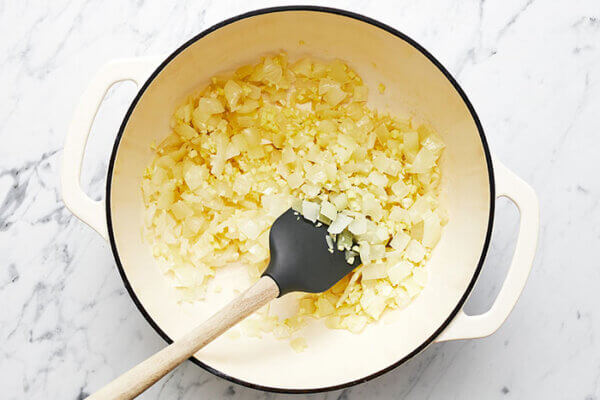
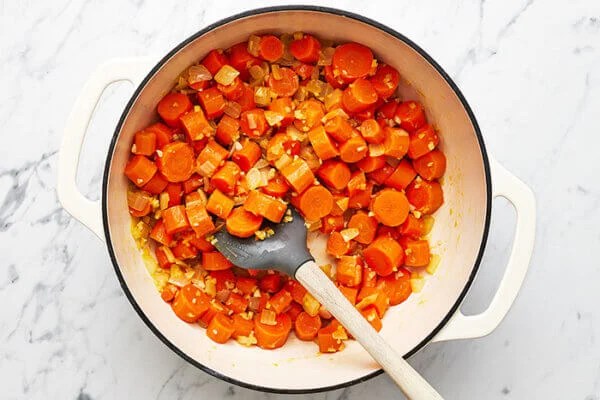
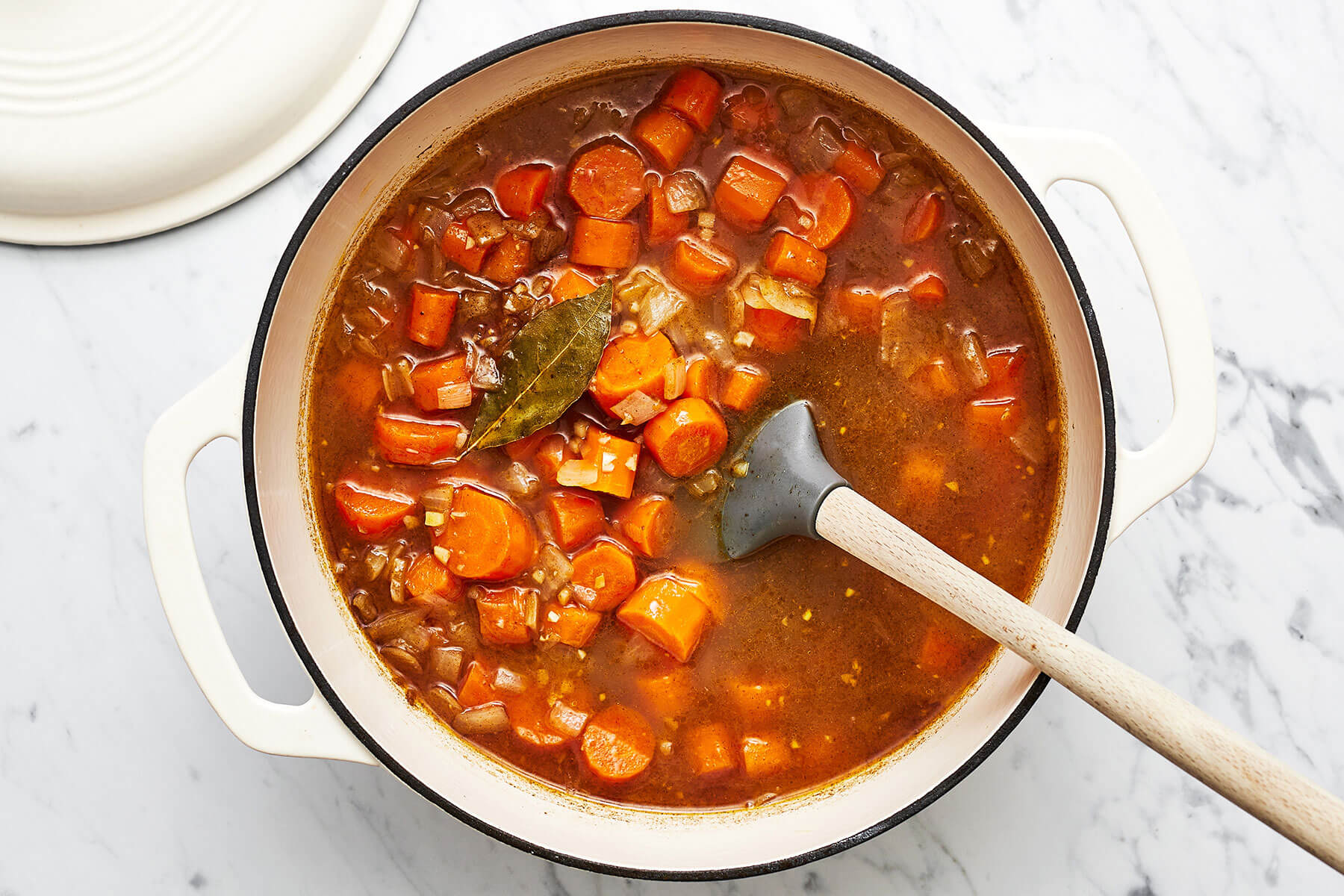
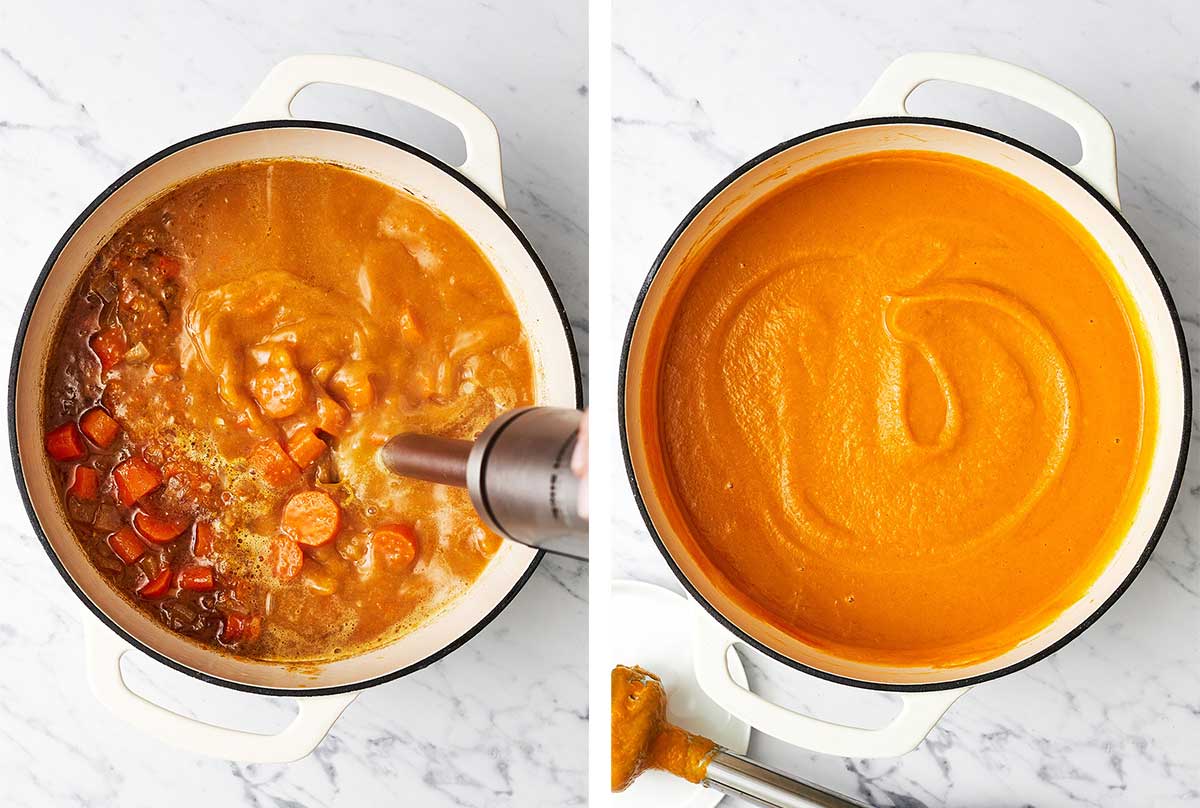













I had a carrot ginger soup at a firm Thanksgiving luncheon, and I was happy to find a recipe here. I used ground ginger and cut the cinnamon in half. It was delicious! I had a friend taste test, and after her second bowl I told her her taste testing was done! I’ve made it several more times, sharing with friends, and they all have loved it. It freezes very well, so I recommend doubling the batch. My go to soup this winter!
Hi Lori – Happy to hear this carrot ginger soup has been such a hit!
Another great staple that Lisa delivers with endless possibilities of edits and options!
The texture is great of this soup. It’s few ingredients but it still feels like a hearty soup. I use chicken broth/stock instead of vegetable.
I do switch the cooking order. I cook the onion first, then carrots, then add the garlic and ginger last for 1-2 minutes before adding everything else. Not sure if it changes the taste too much, but I worried about the garlic or ginger getting too burned/bitter.
I think I am going to attempt to blend this soup recipe and her butternut squash recipe together and see how that works :) And obviously, souper cubes make storing in the freezer SO EASY!
Hi Gary – Happy to hear you’re loving this carrot ginger soup! Do report back on how blending those two soups go, I’m curious.
I already had an idea in mind and your recipe finished it perfectly. I was looking to use sweet potatoes and ginger. Your cinnamon and bay leaf were a great addition.
I like a chunky soup so I didn’t blend it. I mashed some of the sweet potatoes to thicken it.
My husband starting thinking of possibilities. Serve it on pasta or as a sauce for chicken.
delicious- thanks!
So glad you enjoyed it, Cathy! And yes, it’s very versatile. Enjoy!
I’ve made this soup twice now, it is delicious! I followed the recipe except I used ground ginger instead of fresh ginger. I topped it with honey roasted pecans. It is very easy to make. My only recommendation is make 2X or more times the recipe so you can have more servings. Also hopefully next time I will have the fresh ginger.
Hi Amanda – It’s always a good idea to keep a second batch frozen when the cravings hit during the colder months!
Absolutely delicious! I added some aleppo pepper and ground coriander along with the cinnamon, and added about 1/2 cup red lentils. Highly recommend.
I’m so glad you enjoyed this carrot ginger soup, Alyssa!
I recently made this and I wish I would have skipped the cinnamon. Any suggestions to remedy the too-cinnamony flavour? Thanks.
You can balance it out with other savory spices like cumin, ground coriander… If you like some heat, I added Aleppo pepper to it and it was deliciously balanced. The sweetness was more earthy and warming with the other spices. Ground sumac was a nice touch, too!
I used 1/2 the cinnamon and liked it
So delicious
Glad you love this one Beth!
I made this soup carrot and ginger and after reading the reviews I also added curry powder and smoked paprika.
In addition I also added some orange peel which I removed with the bay leaves
Wonderful soup so full of flavour thank you for this and your other wonderful recipes
Hi Stephen – All those additional ingredients sound amazing!
This is an amazing soup, and I enjoy it all year- hot or cold. The broth makes this soup, so use the best you have!
I also suggest adding a little curry powder like a previous commenter. Delicious and refreshing!
Hi Maria – Yes to the curry powder! Happy to hear you’re loving this carrot ginger soup.
I made this soup today and it is delicious! I love carrots! They are one of my favorite vegetables. I have something called achalasia (no peristalsis), so my Vitamix is my best friend. Soups are on regular rotation. This is simple yet complex. Smooth as silk and so flavorful. I use many of your recipes. I appreciate all the research you put into providing us with healthy, yummy options. Thank you for sharing!
Hi Terri – Happy to hear you’re loving this carrot ginger soup!
Terri,
Small world! I also have Achalasia! Puréed soups that are FLAVORFUL are my favorite way to enjoy food and feel happily full. My carrot soup is cooking on my stove now for the first time. Can’t wait to enjoy it! I would love sharing recipes with you.
Great Carrot Soup!
Easy to follow recipe. I grated both the ginger and garlic on my micro plane just for the sake of ease. I did reduce the amount of cinnamon called for to 1/8 tsp. and used 3/4 tsp. of curry powder. It was truly delicious!
Hi Daneen – Happy to hear you’re loving this carrot ginger soup!
My family and I love this soup! I’ve made a few additions to it (extra ginger, some ground turmeric, a little pepper, spring of fresh thyme, saffron and heavy cream), so it’s not quite the same recipe, but it’s still amazing! I’m so glad I found it.
Hi Raven – Loving the little additions you made to this carrot ginger soup!
Love this recipe, thanks.
My one grandchild is a fairly new diagnosed Type 1 Diabetic, she tried a spoonful of the soup and would love to have more. Her diabetes is very unstable, so we have to be careful. You have given the nutritional facts, perfect and a huge thank you, however, for her sake, what is the volume of 1 serving
Am I crazy or is this waaaaay too much ginger?! I made it once and reduced the ginger but it was still quite overpowering (but nevertheless very nice). I’m making again now but with only a couple of inches of fresh ginger and hopefully that will be a better ratio…
Hi Emma – The ginger flavor is supposed to be apparent, but you can always reduce the amount used!
Fantastic recipe! Made it for dinner with our homemade sourdough bread and garlic cream cheese, and Nothing was left. So we made it AGAIN the next night! ;-) so easy, quick, all organic with homemade chicken broth…hmmm thank you for the recipe!
PS: I added 1/2 c cooked rice before the carrots were finished, and the blending made the soup even more creamy and filling.
Hi Alexandra – I’m so glad you’re loving this carrot ginger soup so much!
Love the soup ! Curious of what is the “serving size” for the nutritional values.
This soup is so easy and quick to make. The taste is amazing. I will making it often. Oh and croutons make a nice topping as well.
Hi Diane – Great to hear you enjoyed this carrot ginger soup!
This soup was super bitter!
I’m going to try it with different carrots tomorrow and see how it turns out.
The bitterness is likely from blending the raw garlic, and not the carrots. I would reduce the garlic on your next batch. Hope that helps!
This soup is so easy and quick to make. The taste is amazing. I will making it often. Oh and croutons make a nice topping as well.
Upon reading the reviews, I did just a few things differently. I did a cup of coconut milk along with 3 cups of vegetable stock, a dash of cayenne, 4 tablespoons of ginger and a squeeze of fresh lemon at the end. I garnished with the shallots, coconut milk and cilantro. Best. Soup. Ever!
Thanks for sharing your tweaks, Lois!
Hi Lisa,
I’m serving vegetarian food on New Year’s for guests and wonder if spinach salad with blood orange olive oil dressing would pair well with carrot soup? I’m out of my element. Love your new book and all things Downshiftology!
Hi Robin – I think that sounds delicious! Happy you’re enjoying all of my recipes and my cookbook too. Happy New Year!
So glad I found this soup!!! I was intrigued by the cinnamon and decided to double it (with a bit of extra ginger), and put it through the vitamix. It’s simply perfect and warming. Thank you!
So happy you loved it, Steph!
I love carrot ginger soup, but this recipe doesn’t work for me. It’s way too much ginger and cinnamon (and I’m a huge cinnamon fiend and like spicy, well-seasoned food). I cut it way down with chicken broth and it was still strong.
Ah, bummer. Sorry you didn’t love this one, Leah. But thanks for giving it a try!
I love this soup so much! So perfect for colder weather. And nothing but goodness. Thank you!
Happy you loved it!
I grew a small crop of carrots and devoted a quarter of all of them to this recipe. I actually put in more than the amount of fresh ginger (was it supposed to be powder?), and it was excellent. Maybe too much ginger but it’s good for you! I will reheat the leftovers and add some coconut milk.
I’m always a fan of extra ginger as well, so feel free to add more! Enjoy!
I LOVE ginger and use it in a lot of my cooking, but three tablespoons in this recipe seems like a lot! Is it possible I’m reading that wrong? I tried it anyway as the reviews were so good, but the ginger was so overpowering I couldn’t taste any of the other flavors, barely even the carrots…
This soup is meant to have a gingery punch. But you can always reduce it down to 1 or 2 depending on how you like it!
Agree. Ginger completely obliterated any carrot flavor. Had to add more broth and carrots
very good.
I liked this soup alot! I made it a second time and added a little pinch of red pepper flakes and used a small 5.6 OZ. Can of Coconut cream along with the vegetable broth. I used slightly less broth so it wasn’t too runny and I added more salt for taste. Overall, tasty 😋
Thanks so much, Bre! I’m happy you loved the recipe!
Lisa, 9
I’m making this soup for a Very large group (60 people). Does this batch size make about 4 cups, or more like 6 cups? thank you!
I’d say this batch makes closer to 6 cups!
This was wonderful. I loved that there was no dairy in this soup. The ginger gives the soup a lovely zing. I will make it again
I’m glad you enjoyed it!
DELICIOUS!!!;
This soup is so good and super easy to make! Thanks for the recipe!
This soup is delicious! Creamy, full of fresh, vibrant flavor! It’s easy to prepare and stores and reheats beautifully, keeping it’s carroty, bright goodness until the very last drop (a week after making it).
Happy to hear you’re loving this soup Rene!
added some lemon to my bowl and WOW it pops! Amazing! Thank you for the easy recipe!!
Made this soup twice in one month because it was so good! Added coconut cream, toasted sunflower seeds, and the crispy shallots for toppings as the recipe suggests and my friends loved it.
Happy to hear you’re loving this carrot ginger soup Lilian!
Wow Wow Wow!!!! The Carrot Ginger soup was amazing. I know I am supposed to have one serving but, I would like to have more,